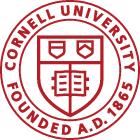- News and articles
- Find usIDP AustraliaIDP BahrainIDP BangladeshIDP CambodiaIDP CanadaIDP ChinaIDP EgyptIDP GhanaIDP Hong KongIDP IndiaIDP IndonesiaIDP IranIDP JordanIDP KenyaIDP KoreaIDP KuwaitIDP LebanonIDP MalaysiaIDP MauritiusIDP Middle EastIDP NepalIDP New ZealandIDP NigeriaIDP OmanIDP PakistanIDP PhilippinesIDP Saudi ArabiaIDP SingaporeIDP Sri LankaIDP Taiwan, ChinaIDP ThailandIDP TurkeyIDP UAEIDP VietnamIDP Corporate
- Social
- English
- Where we operate
- Courses
- Scholarships
- IELTS
- About IDP
- Student Essentials
- News and articles
- Find us
- Find us
- Find nearest IDP offices
- IDP Australia
- IDP Bahrain
- IDP Bangladesh
- IDP Cambodia
- IDP Canada
- IDP China
- IDP Egypt
- IDP Ghana
- IDP Hong Kong
- IDP India
- IDP Indonesia
- IDP Iran
- IDP Jordan
- IDP Kenya
- IDP Korea
- IDP Kuwait
- IDP Lebanon
- IDP Malaysia
- IDP Mauritius
- IDP Middle East
- IDP Nepal
- IDP New Zealand
- IDP Nigeria
- IDP Oman
- IDP Pakistan
- IDP Philippines
- IDP Saudi Arabia
- IDP Singapore
- IDP Sri Lanka
- IDP Taiwan, China
- IDP Thailand
- IDP Turkey
- IDP UAE
- IDP Vietnam
- IDP Corporate
- Social
- Language Switcher
- IDP Education /
- Colleges and Universities /
- United States /
- Cornell University /
- Doctor of Philosophy in Bio...

Doctor of Philosophy in Biomedical Engineering - Molecular and Cellular Engineering
At CORNELL UNIVERSITY

Location
United States
Qualification
Ph.D.
Fees
USD24800
(2025)
Duration
6 Semester(s)
Next intake
26 August 2025
Entry Score
7.0
IELTSCourse info
It is anticipated that students entering into the field of Biomedical Engineering will have received formal training in a recognized sub-discipline of engineering. Students obtain thorough training in biomedical engineering research. They also master the Ph.D. course work for a minor in a traditional engineering discipline and another minor in an area of the life sciences. Formal course work in the major includes a two-semester course in the Foundations of Biomedical Engineering, advanced BME analysis of biological systems, at least one other advanced course in bioengineering, and required seminars. Further, PhD students are expected to complete a six week immersion experience in medical research and clinical practice at Weill Medical College, as well as completing a graduate student teaching experience. M.S. students complete the Foundations in Biomedical Engineering course, two semesters of seminars, and typically four to five additional courses in engineering and the life sciences. These requirements are subject to revision.
Cornell biomedical engineers implement multidisciplinary and multi-scale strategies that combine advanced high resolution imaging, biophysics, microfabrication, genetic modifications, protein engineering, and quantitative modeling to analyze and manipulate cell and molecular dynamics and interactions. We are motivated by the goal of uncovering the details of normal cell functions and disease processes, improve diagnostics, and develop novel therapeutic approaches. Cornell's world-class expertise and resources include: the Cornell NanoScale Science & Technology Facility (CNF), the Cornell Center for Immunology, the Biotechnology Resource Center, the Cornell Physical Science Oncology Center, and Cornell's top-ranked veterinary school and medical school synergize to create an ideal environment for research in Molecular and Cellular Engineering.
- Scholarships
- Internships
Course fees are indicative and should be used as a guide. to get an accurate price.
Duration: 6 Semester(s)
Fees: USD24800
| Intake | Location |
|---|---|
| Fall (August), 2025 | Ithaca |
Entry requirements for Cornell University
three recommendations
GRE scores are not required or accepted
TOEFL iBT - 77 (Writing 20, Listening 15, Reading 20, Speaking 22)
IELTS - 7.0 or higher
Application Deadline
The application deadline isn't available Speak to an IDP counsellor for more detailed information
Further information
If you aren't eligible for the above entry requirements, you might ant to explore pathway options at Cornell University. If you want to find out more, speak to our counsellors.
THE World Ranking
20th / 1250
THE World RankingWhat our students think
We’ve haven’t received any reviews for this institution yet.
Recommended for you
- THE World Ranking:122
- Ph.D.
- East Lansing , United States
- Next intake:05/2025
- Entry Score: IELTS 6.5
- 0 (2025)
- THE World Ranking:122
- Ph.D.
- East Lansing , United States
- Next intake:05/2025
- Entry Score: IELTS 6.5
- 0 (2025)
- THE World Ranking:122
- Ph.D.
- East Lansing , United States
- Next intake:05/2025
- Entry Score: IELTS 6.5
- 0 (2025)
- THE World Ranking:122
- Ph.D.
- East Lansing , United States
- Next intake:05/2025
- Entry Score: IELTS 6.5
- 0 (2025)
- THE World Ranking:122
- Ph.D.
- East Lansing , United States
- Next intake:05/2025
- Entry Score: IELTS 6.5
- 0 (2025)
- THE World Ranking:122
- Ph.D.
- East Lansing , United States
- Next intake:05/2025
- Entry Score: IELTS 6.5
- 0 (2025)
- THE World Ranking:122
- Ph.D.
- East Lansing , United States
- Next intake:05/2025
- Entry Score: IELTS 6.5
- 0 (2025)
- THE World Ranking:122
- Ph.D.
- East Lansing , United States
- Next intake:05/2025
- Entry Score: IELTS 6.5
- 0 (2025)
Your action plan
Step 1
Shortlist your courses
Choose the best three courses you’re most likely to pursue.
Step 2
Check your eligibility
Get an instant in-principle offer for courses with the IDP FastLane tag.
Step 3
Apply through IDP Live
Fill out the form once and use it to apply to multiple courses.
How does IDP FastLane work?
With the FastLane 'Offer in Principle', you'll know in minutes if you'll be accepted!
Select an institution and course
Create your academic profile
Submit your application for an 'Offer in Principle'
Your chosen institution(s) will send you a decision in minutes!
Get ready to apply with an expert counsellor




